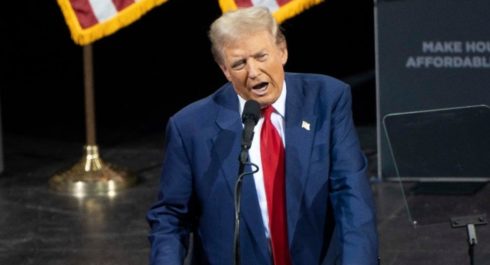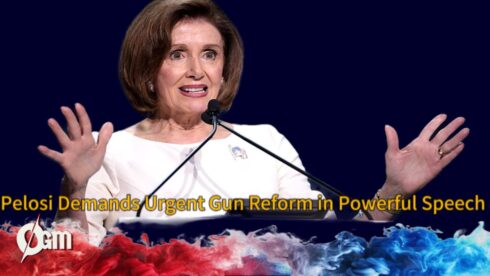Former President Donald Trump denied comparisons to Nazi ideology following a contentious rally held at Madison Square Garden on Sunday. The rally, featuring speakers who used inflammatory and racially charged language, drew heavy criticism from prominent Democrats, including Hillary Clinton and Kamala Harris’ running mate, Tim Walz. Clinton likened the event to a 1939 gathering of Nazi sympathizers at the same venue, fueling heated political debate just a week before the presidential election.
Addressing the allegations during a subsequent rally in Georgia, Donald Trump stated, “I’m not a Nazi. I’m the opposite of a Nazi,” firmly rebuffing attempts to associate him with extremist ideology. Donald Trump emphasized his commitment to American values while pointing to the importance of unity and resilience in challenging times. The former president’s presence in Georgia, a pivotal swing state, highlights his strategic approach in targeting key regions during the final stretch of his campaign.
Faith Leaders Show Support as Donald Trump Rallies in Georgia
Earlier in the day, Donald Trump participated in a prayer gathering led by notable faith leaders in Georgia. Pastor Paula White, a longtime spiritual advisor to Donald Trump, recounted the formation of a prayer group that originated before Trump’s first presidential campaign. Surrounded by advisors and supporters with hands joined, Trump received blessings as Pastor White invoked a spirit of unity and strength among his followers, encouraging both spiritual support and voter mobilization.
White described the prayer circle’s beginnings at Donald Trump Tower, celebrating what she described as divine guidance throughout Donald Trump’s political journey. The gathering underscored Trump’s efforts to strengthen his rapport with the evangelical community, which has been a significant base of support throughout his political career. His campaign continues to position him as a leader in tune with Christian values, with faith-based gatherings emerging as a focal point in the days leading up to the election.
Trump Responds to Democratic Criticism, Denies Fascism Allegations
During his Atlanta rally, Trump directly responded to accusations from Democrats, including Vice Presidential nominee Kamala Harris and former First Lady Michelle Obama. Harris had labeled Trump a “fascist” in recent comments, a claim echoed by former officials who suggested Trump might govern as a dictator if reelected. Trump, however, dismissed these assertions, characterizing them as desperate attempts by Democrats to undermine his credibility.
Referring to his father’s advice never to use the word “Nazi,” Trump reiterated his belief in democratic principles and pushed back against allegations questioning his leadership style. In a pointed remark directed at Michelle Obama, who recently criticized Trump’s mental acuity and past allegations of sexual misconduct, Trump accused the former first lady of being “nasty” and claimed her remarks were an inappropriate attempt to sway voters. His counterattack on Obama has sparked fresh discourse about the nature of political rhetoric and the heightened tensions in the final days of the campaign.
Donald Trump Takes Aim at Kamala Harris and Double Standards in Media Coverage
Trump’s speech also included criticism of Kamala Harris, focusing on an incident in which she was reportedly caught on a hot mic using profane language while discussing campaign challenges with Michigan Governor Gretchen Whitmer. “She used the F-word. Did you see that? No, it’s terrible,” Trump said, contrasting the lack of media coverage surrounding Harris’s remarks with what he claims would have been a front-page scandal if he had made similar comments.
In another part of his speech, Trump accused major media networks, including Fox News, of favoring Democratic narratives and ignoring missteps by his opponents. He specifically targeted Michelle Obama’s appearance on the campaign trail alongside Harris, portraying it as a sign of a “dying campaign.” With Election Day fast approaching, Trump urged his supporters to turn out in record numbers, predicting a historic victory on November 5, which he dubbed “liberation day.” The rally showcased Trump’s familiar blend of humor, critique, and populist messaging, a strategy aimed at galvanizing his base while appealing to undecided voters.














